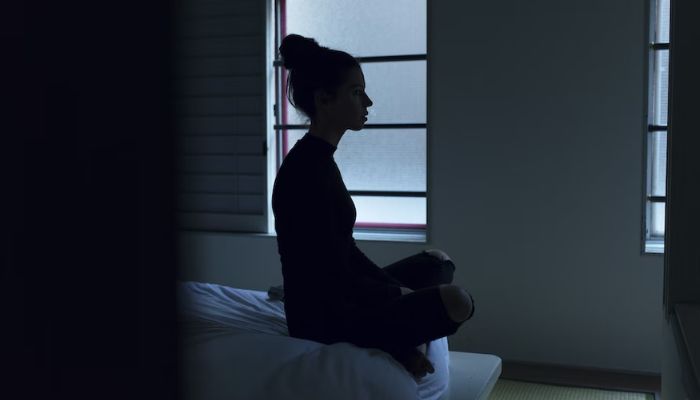Why women are twice as likely to feel depressed
Women are twice as likely to have a significantly low mood due to a combination of biological and social factors
January 03, 2023

Women are twice as likely to have a significantly low mood due to a combination of biological and social factors, even when they are more likely to seek help, studies have found.
Following are some reasons why twice as many women as men — roughly one in eight over their lifetime — struggle with depression.
Bigger hormonal swings
Over the course of their lives, men's levels of the primary sex hormone testosterone remains rather constant.
Around puberty, it remains constant day in and day out, only progressively declining after the age of 40 at a rate of 1% to 2% every year.
However, as part of the menstrual cycle, girls experience significant changes in oestrogen and progesterone levels beginning with the first day of their periods.
This may contribute to the explanation for why, up until adolescence, depression rates in boys and girls are comparable, as found in a 2017 study published in the journal Psychological Bulletin. The prevalence of depression in girls quadruples after that.
One explanation is that oestrogen has an impact outside of the ovaries. It is essential to how the female brain functions as well. It aids in the production of feel-good brain chemicals like serotonin in females.
This explains why, according to a study published in the Proceedings of the National Academy of Sciences, men may consume this mood enhancer up to 52% more frequently.
Women experience a higher rate of hormone-related mental health problems.
According to the UK's National Institute for Health and Care Excellence, up to 15 to 20% of new mothers will experience depression in the first year after giving birth.
Worse sleep quantity plus quality
Many women complain of their spouse soundly sleeping while they stay up. According to a study published in the journal Philosophical Transactions of the Royal Society of London, women are up to 40% more prone than males to experience insomnia.
When they do sleep, they don't get as much rest and are more likely to wake up in the middle of the night.
Female hormone fluctuations, snoring partners, and children that wake up during the night are a few causes. But if they don't get enough sleep, women experience more than just fatigue. It can add up to a depressed mood over time.
People experiencing sleeplessness were five times more likely to experience depression, according to a survey of 10,000 adults.
More likely to experience burnout
In the UK, almost as many women as males are employed now. But even if there are more women working full or part-time than ever before, the majority are "double dipping" and are still responsible for the same amount of childcare and housework.
A 2018 study by the University of Montreal discovered that because women typically have less authority at work, this might also result in the frustration and helplessness that are the hallmarks of burnout.
More likely to experience ‘winter blues’
Seasonal depression, also known as the "winter blues" because of the shorter days in winter (less sunlight), affects about six out of every 100 persons. Women are four times more likely than males to experience it.
The creation of serotonin, which is already lower in females, is aided by sunlight, which is one potential explanation.
Women worry and blame themselves more
It's not in your head. Compared to women, guys don't worry nearly as much. According to research, women prefer to internalise their anxieties while men tend to look outward and try to address problems when they are feeling unpleasant.
Additionally, they have a much higher proclivity to blame themselves and ruminate, two behaviours that have been linked to sadness.
Menopause and feel-good hormones
Women's oestrogen levels start to fluctuate during menopause and eventually halt when their periods end. This causes a significant decline in the amounts of mood-enhancing chemicals while their brains adjust.
Additionally, up to 20% of menopausal women report having episodes of depression. Women have larger concentrations of the brain protein monoamine oxidase prior to this shift.
Serotonin levels are depleted as a result, making it harder to maintain a positive attitude.











